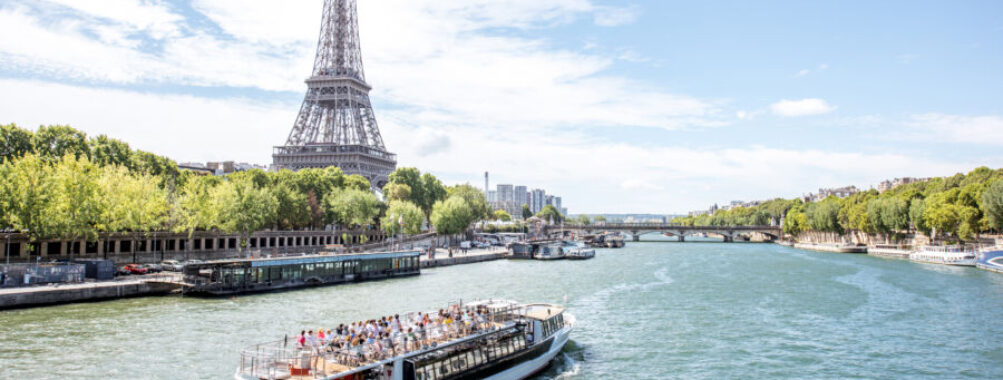
Yacht Trip Cost Under $5000 for Unforgettable Week
Dreaming of a luxurious yacht trip but worried about the cost? You’re not alone. Many people think yacht charters are only for the ultra-wealthy, but there are options for different budgets. A private yacht charter can cost anywhere from $3,500 to $50,000 or more per person per week, depending on the yacht size, location, and time of year.
Smaller sailboats and catamarans are more budget-friendly, starting around $10,000 per week for the whole boat. Larger motor yachts and superyachts can run $30,000 to $150,000+ weekly. Don’t forget to factor in extra costs like fuel, food, drinks, and tips – these can add 25-40% to the base price.
The good news is you can tailor a yacht trip to fit your budget. By choosing the right boat, destination, and season, you can have an amazing experience without breaking the bank. Let’s look at how to make your dream yacht vacation a reality.
Contents
- Key Takeaways
- Understanding Yacht Charter Costs
- Base Charter Fee
- Advanced Provisioning Allowance (APA)
- Additional Costs
- Seasonal Influences on Yacht Charter Prices
- High Season vs. Low Season
- Types of Yacht Charters and Their Costs
- Crewed Yacht Charter
- Bareboat Charter
- Luxury Yacht Charter
- Catamaran Charter
- Additional Financial Considerations in Yacht Chartering
- Taxes and VAT
- Dockage Fees
- Yacht Insurance
- Crew Gratuity
- The Role of Yacht Brokers and Charter Agents
- Choosing a Reputable Broker
- Payment Structure and Fees
- More Travel Guides
Key Takeaways
- Yacht charter costs vary widely based on boat type, size, and location
- Extra expenses like fuel and food can add 25-40% to the base charter price
- Careful planning can make a yacht trip more affordable than you might think
Understanding Yacht Charter Costs
Renting a yacht involves several key expenses. Let’s break down the main costs you’ll encounter when planning your luxurious sea adventure.
Base Charter Fee

The base charter fee is the starting point for your yacht rental. This fee covers the use of the yacht and its equipment. Prices vary widely based on factors like:
- Yacht size and type
- Season and location
- Length of charter
For a week-long trip, expect to pay anywhere from $10,000 for a smaller sailing yacht to $150,000 or more for a superyacht. Summer months in popular spots like the Mediterranean tend to be pricier. Winter charters in the Caribbean can offer better deals.
Keep in mind that bigger isn’t always better. A 60-foot sailboat might cost around $12,000 per week, while a motor yacht of the same size could run you $30,000.
Advanced Provisioning Allowance (APA)
The APA covers your day-to-day expenses during the charter. It’s usually about 25-40% of the base fee. You’ll pay this upfront, and the captain will use it for:
- Fuel
- Food and drinks
- Port fees
- Special requests
If you’re a foodie who loves fancy meals and rare wines, your APA might be higher. Sailing yachts often have lower fuel costs than motor yachts.
Your broker can give you an idea of what to expect based on your plans. Any unused APA gets refunded at the end of your trip.
Additional Costs

Don’t forget about these extra expenses:
- Crew tips (usually 10-20% of the base fee)
- Travel insurance
- Transportation to and from the yacht
- Special activities or equipment rentals
Some charters might include extras like jet skis or scuba gear. Others charge extra. Always ask what’s included to avoid surprises.
Prices can change based on the season and your specific needs. It’s smart to chat with a yacht rental expert to get the most accurate picture of costs for your dream trip.
Seasonal Influences on Yacht Charter Prices

Yacht charter prices can swing wildly depending on the time of year you book. When you plan your trip makes a big difference in what you’ll pay. Let’s break down how seasons affect yacht rental costs.
High Season vs. Low Season
The high season for yacht charters usually falls during summer months and holidays. If you’re eyeing a Mediterranean yacht charter, expect peak prices from June to August. A 60-foot sailboat in the Greek Islands might cost you around $15,000 per week during this busy time.
Low season, on the other hand, can offer some sweet deals. Winter months in the Med (except for the holidays) often mean cheaper rates. You might snag that same 60-footer for $10,000 or less per week.
But watch out – some spots flip this script. Take the Bahamas yacht charters, for example. Their high season runs from December to April when folks escape the cold up north. A week on a luxury catamaran could set you back $25,000 or more during these months.
Timing is key when you’re looking to save cash on your yacht adventure. Book in the shoulder season – right before or after peak times – and you might score a great balance of good weather and lower prices.
Types of Yacht Charters and Their Costs

Yacht charters come in different flavors to suit various tastes and budgets. Let’s explore the main types you’ll encounter and what they might cost you.
Crewed Yacht Charter
A crewed yacht charter is perfect if you want a worry-free trip. You’ll have a captain and crew to handle everything. They’ll navigate, cook meals, and keep the boat shipshape.
Prices for crewed charters vary widely. A smaller sailing yacht might set you back $10,000 to $20,000 per week. Bigger motor yachts can cost $50,000 to $100,000 or more. The price depends on the boat’s size, age, and amenities.
Remember, these prices often don’t include food, fuel, or docking fees. You’ll need to budget extra for those. Many charters use an Advanced Provisioning Allowance (APA) of about 30-35% of the base price to cover these extras.
Bareboat Charter
Fancy playing captain? A bareboat charter lets you take the helm yourself. It’s a great option if you’re confident in your sailing skills and want more freedom.
Bareboat charters are usually cheaper than crewed ones. A 30-40 foot sailboat might cost $2,000 to $5,000 per week. A catamaran of similar size could be $3,000 to $7,000.
You’ll need to prove you can handle the boat safely. Some companies might ask for sailing certifications or a boating resume. Don’t forget to factor in fuel, food, and mooring fees – they’re all on you with this option.
Luxury Yacht Charter

If you want to go all out, a luxury yacht charter is the way to do it. These boats are floating palaces with every comfort you can imagine.
Luxury yachts start at around $150,000 per week and can go up to millions. A 100-foot motor yacht might cost $250,000 to $500,000 per week. Larger superyachts over 200 feet can easily top $1 million.
These prices usually include a professional crew, gourmet chef, and high-end amenities. But you’ll still need to budget for fuel, food, and docking fees. Expect to add another 30-50% to the base price for these extras.
Catamaran Charter
Catamarans are getting more popular for charters. They offer more space and stability than monohull boats.
A small catamaran (30-40 feet) might cost $3,000 to $7,000 per week for a bareboat charter. Larger cats (50-60 feet) with a crew can run $20,000 to $50,000 per week.
Cats are great for groups or families. They have more outdoor space and are less likely to make you seasick. But they can be pricier than similar-sized monohulls. You’ll also need to check if they can dock at your planned stops – some marinas charge extra for wider boats.
Additional Financial Considerations in Yacht Chartering

When planning your yacht trip, it’s crucial to factor in several extra costs beyond the base charter fee. These hidden expenses can add up quickly and impact your overall budget.
Taxes and VAT
Yacht charters are subject to various taxes depending on where you sail. Value Added Tax (VAT) is common in many countries, especially in Europe. VAT rates can range from 10% to 25% of your charter fee. For example, in Greece, you’ll pay 12% VAT, while in Italy it’s 22%. Some places offer reduced rates for longer charters or specific routes.
Always ask your charter company about applicable taxes upfront. In some cases, you might be able to avoid VAT by sailing to international waters. Keep in mind that tax rules can change, so double-check the current regulations for your chosen destination.
Dockage Fees
You’ll need to pay for docking your yacht at marinas or ports during your trip. These fees vary widely based on location, season, and yacht size. Popular Mediterranean marinas might charge €100-€300 per night for a 40-foot yacht. Caribbean dockage tends to be cheaper, around $50-$150 nightly.
Some charter packages include a certain number of nights’ dockage, but additional stays will cost extra. To save money, you could anchor in bays or coves when possible. Just remember to factor in tender fuel costs for trips to shore.
Yacht Insurance
While most charter companies include basic insurance in their rates, you might want extra coverage for peace of mind. Additional insurance can protect you from higher deductibles or liability for damage.
Prices for supplemental insurance typically range from 5% to 15% of your charter fee. For a $20,000 weekly charter, that’s about $1,000-$3,000 extra. Consider your comfort level with risk and the rental conditions when deciding on insurance.
Crew Gratuity
Tipping your yacht crew is customary and should be part of your budget. The standard gratuity is 15-20% of your base charter fee. For a $30,000 charter, plan on $4,500-$6,000 for tips.
If the crew has gone above and beyond, you might want to tip more. Remember, these hardworking professionals rely on tips as a significant part of their income. It’s best to bring cash for gratuities, as credit card payments can be tricky in some locations.
The Role of Yacht Brokers and Charter Agents

Yacht brokers and charter agents play a key part in making your yacht trip happen. They handle the details and can even save you money. Let’s look at how to pick a good broker and what fees you’ll need to pay.
Choosing a Reputable Broker
When you’re looking for a yacht broker, start by asking friends for recommendations. Check online reviews too. A good broker should have years of experience and know lots about different yachts and destinations. They’ll ask about your needs and budget to find the perfect match. Don’t be shy about interviewing a few brokers before picking one. Ask about their fees and what services they offer. A trustworthy broker will be happy to answer your questions and won’t pressure you to decide quickly.
Payment Structure and Fees
Yacht charter fees may seem confusing at first, but your broker will break them down for you. The base charter fee covers the yacht and crew. You’ll also pay for fuel, food, and drinks separately. This is called the Advance Provisioning Allowance (APA) and is usually about 30-35% of the base fee. Broker fees are typically around 15% and the yacht owner pays for them, not you. So using a broker won’t cost you extra.
When you’re ready to book, you’ll sign a contract and pay a deposit. The rest is due before you set sail. Keep in mind that prices can change based on the season and how fancy the yacht is. Your broker will help you understand all the costs upfront so there are no surprises.



